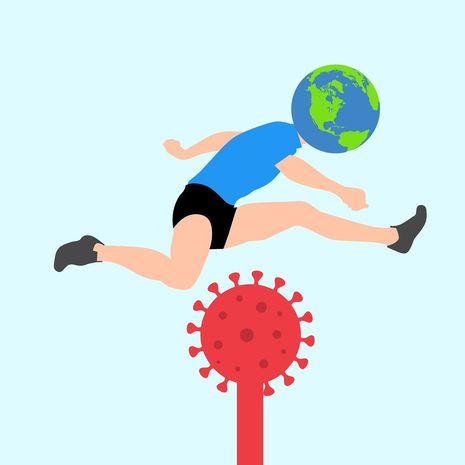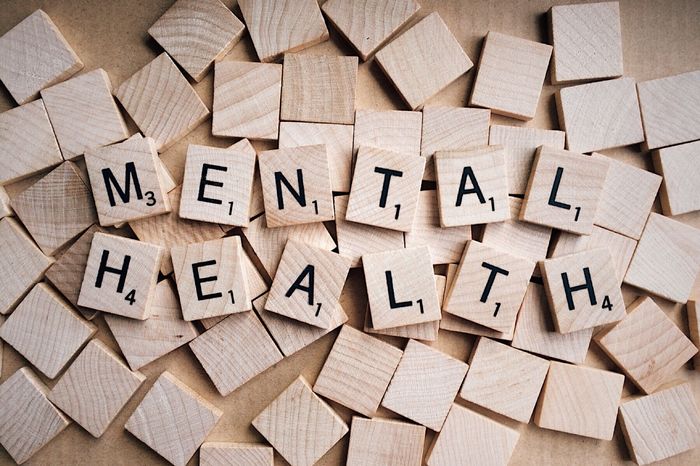How has the pandemic affected the mental health of elite sportspeople?
Damola Odeyemi discusses how postponed competitions, lack of spectators and health implications have affected sportspeople.

Words like resilient, adaptable, and consistent are regularly used to describe professional sportspeople. Athletes at the top of their game have an aura of self-confidence and invincibility and this is reflected in their mental states. Their confidence has been nurtured and battle-hardened by many challenges and the pandemic has brought more that no one could have foreseen. The mental health effects of lockdowns, travel bans, losses of loved ones, and getting infected has been observed in the general public as well as elite sportspeople.
It goes without saying that sportspeople are in an incredibly privileged position, in that they are able to continue doing their jobs and earn significant amounts of money. In many cases the problems they used to face were unrelatable and superficial in the eyes of the general public. However, the pandemic has presented a situation in which some of the issues they do have, especially relating to mental health, have become more relatable and accessible to anyone.
“Their happiness and confidence are intrinsically tied to their successes.”
The link between mental health and physical health is never more pronounced than in the life of sportspeople. They make a living out of their physical performances; their happiness and confidence are intrinsically tied to their successes. The added effect of public scrutiny and pressure from supporters means that there’s a lot riding on an athlete’s physicality. The consequences of an athlete being infected with Coronavirus can be significant, with potential long term health complications.
The French international and world cup winner, Paul Pogba, recently opened up about the effect COVID had on his confidence. The physical setbacks that he experienced manifested themselves mentally as he wasn’t meeting the expectations he once had of himself. As Cambridge students, we can relate to this. On many occasions, to the detriment of our mental health, we are prone to basing our self-esteem on academic performance, particularly in comparison to our peers. The main difference is that we can try to convince ourselves that grades do not define us. However, in the case of an elite sportsperson, their physical performance very much does define them – it is their life and their income. Their belief in themselves is built upon comparisons to other athletes, most especially in team sports like football.
“As Cambridge students, we can relate to this.”
In individual sports, mental health has been affected in a broader range of ways. Depression is somewhat common in elite athletes, especially in a sport like tennis, where players are numerically ranked against each other. Professional tennis players, in comparison to most sportspeople, are more open to talking about mental health issues and the impact of the pandemic. Many felt that they benefited from their forced time off while others felt it was a detriment to their mental health. The most common complaint was loneliness and the lack of connection with other players, family and most importantly, spectators.
Professionals don’t simply perform for their own gain; they are entertainers, putting on a show for a live audience. The adoration and appreciation from spectators is often their motivation to play and the presence of spectators strips away the burden of competing solo. Now, with no fans, players have reported lack of motivation and depression as the sport that has given them so much joy for most of their lives now seems isolating. Gael Monfils has been open about his struggles. The 34-year-old French player had a great start to 2020, winning an ATP title in Rotterdam, but since the pandemic began and tennis resumed behind closed doors, he has been on a 7-match losing streak, seemingly unable to motivate himself in front of empty seats. After his exit in the first round of the Australian Open last Monday (08/02/2021), he broke down in tears in his press conference, lamenting that he had no confidence. A player known for drawing energy from the crowd and being an entertainer on court looked devoid of self-confidence.
“Professionals don’t simply perform for their own gain; they are entertainers, putting on a show for a live audience. ”
Tennis players have been somewhat lucky as the grand slams and tour-level events are still being played and the opportunity to win titles and prize money remains fixed. Track and field athletes, on the other hand, have faced a different challenge. The uncertainty brought by the postponement of the Tokyo Olympics to 2021 has been mentioned by many as a cause of anxiety. These athletes train in 4-year cycles with the aim of peaking at the Olympics, the pinnacle of sporting events. They now must consider the consequences of either stalling their training to account for the additional year, with the risk of not peaking in time, or continuing to train at high intensity with the risk of burnout. Olympic athletes are under a huge amount of pressure to perform on the day, with another chance not coming for another 4 years.
The pandemic has highlighted the significance of sport in society. Many breathed a sigh of relief when sport resumed last year as a distraction from the difficulties of COVID life and a boost to public morale. Conversely, for these professional athletes, sport is less of an escape and more of a pressure. Much like us, they struggle with issues of confidence, loneliness and anxiety and the pandemic has forced them to combat these under more challenging circumstances.
 News / Caius mourns its tree-mendous loss23 December 2025
News / Caius mourns its tree-mendous loss23 December 2025 News / Clare Hall spent over £500k opposing busway 24 December 2025
News / Clare Hall spent over £500k opposing busway 24 December 2025 Comment / The ‘class’ of Cambridge24 December 2025
Comment / The ‘class’ of Cambridge24 December 2025 Comment / Yes, I’m brown – but I have more important things to say22 December 2025
Comment / Yes, I’m brown – but I have more important things to say22 December 2025 Interviews / Politics, your own way: Tilly Middlehurst on speaking out21 December 2025
Interviews / Politics, your own way: Tilly Middlehurst on speaking out21 December 2025








